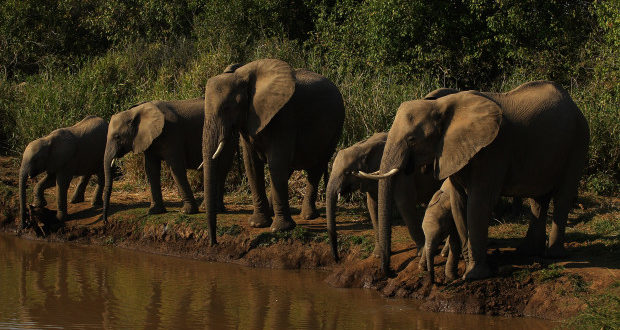Scientists: Mass Extinction May Be Underway
Published on July 30th, 2014
July 29, 2014
CBS Local
CHARLOTTE (CBS Charlotte) – An international team of scientists is warning that Earth may be entering the early stages of another mass extinction event, reports Live Science.
More than 320 land vertebrates have gone extinct since the year 1500 and many of the world’s plant and animal species are endangered, says a new study. Up to one-third of all vertebrates are threatened or endangered, the researchers said.
Large land animals, such as elephants, rhinoceroses and polar bears, show the highest rates of decline. They are at particular risk because they tend to have few offspring and low population growth rates. Hunters and poachers also find their fur, meat, tusks or horns to be attractive targets.
Losing a species of large animal can have unexpected effects on the ecosystem and nearby human developments, a process known as defaunation. In an earlier study, researchers isolated patches of land from animals, including zebra, giraffes and elephants. Without the animals, the grass and shrubs grew tall, and the soil became looser. Rodents quickly took over and doubled in numbers, eating the seeds from the plants and living in the patchy soil that was relatively predator-free.
The decline of big animals affects not only vegetation, but also invertebrates. In the past 50 years, the human population has doubled, and the number of invertebrate animals has dropped by 45 percent, the researchers said. Much of the loss is a result of habitat destruction and global climate disruption, the researchers stated.
The previous mass extinction was 65 million years ago when the great dinosaurs died out, most likely as a result of climate catastrophes brought on by a massive meteor strike.
Previous research by Duke University biologist Stuart Pimm suggests that before humans came along, one species went extinct per every 10 million years, on average, according to Live Science. But now that number has soared to between 100 and 1,000 species.
Pimm’s study was published May 29 in the journal Science.
(TM and © Copyright 2014 CBS Radio Inc. and its relevant subsidiaries. CBS RADIO and EYE Logo TM and Copyright 2014 CBS Broadcasting Inc. Used under license. All Rights Reserved. This material may not be published, broadcast, rewritten, or redistributed.)





